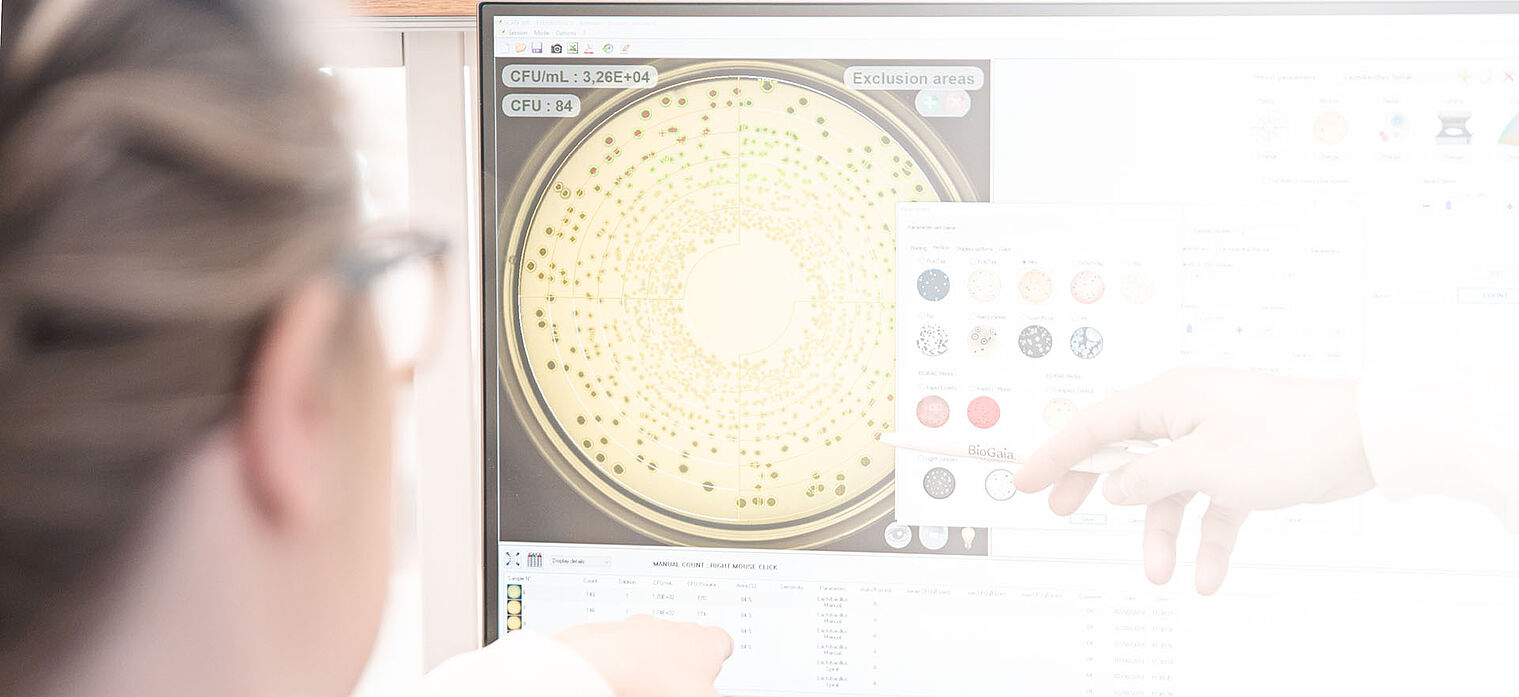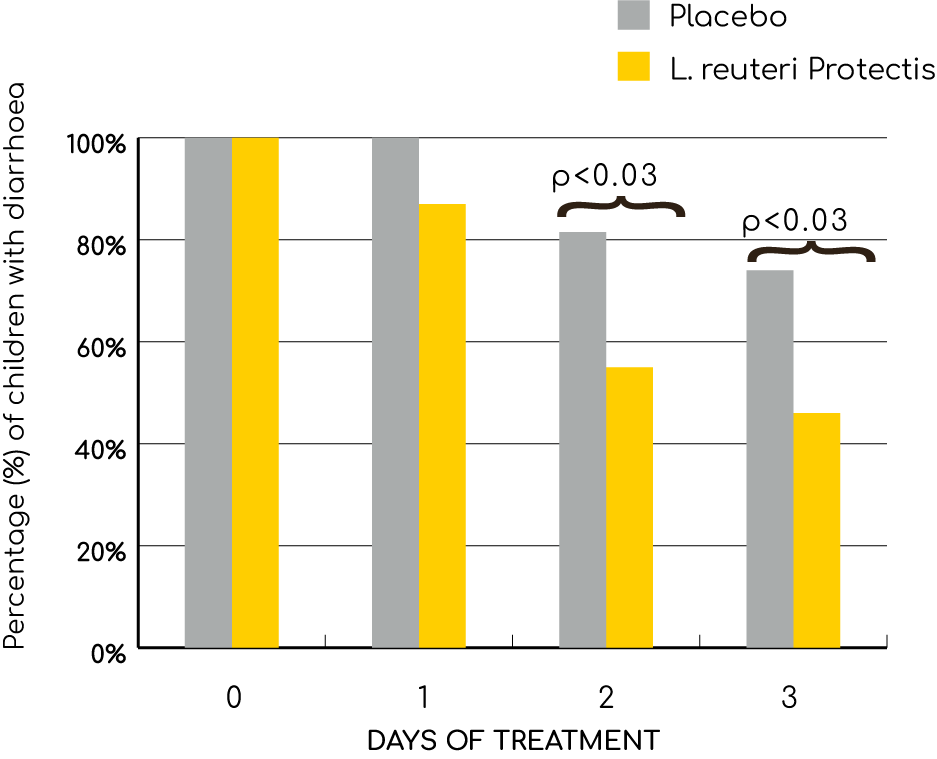
Acute gastroenteritis
Clinical studies show strong evidence that children and adults with acute gastroenteritis benefit from the administration of BioGaia ProTectis.
This may cause diarrhoea and other stomach problems, a condition called antibiotic associated diarrhoea (AAD). Other symptoms such as bloating, stomach pain and other functional abdominal symptoms may also occur.
Acute gastroenteritis (AGE) is an inflammation of the gastrointestinal tract. It affects both the gastric mucosa as well as the small intestine and can cause loose or liquid stools several times during a day. The child may have a fever and vomit and the symptoms may persist for 1-2 weeks.
In countries with good child care, the disease is mild and rarely lead to death, but might still require hospitalization, which is often associated with a lot of suffering and high costs.
Several systematic reviews have found probiotics to be effective in reducing the duration of diarrhoea in children and adults.
Amongst those Shornikova showed that after 2days of treatment with BioGaia 74 % of the patients have been free from watery diarrhoea and vomiting – published 1997 in the medical journal J. Pediatr. Gastroenterol. Nutr.
Also the study from Francavilla published in 2012 showed the efficacy and safety of BioGaia Protectis while treating children with acute watery diarrhoea.
Containing Limosilactobacillus reuteri Protectis, BioGaia Pobiotic Drops and Tablets promote the growth of good bacteria in the intestinal tract, re-establishing a healthy bacterial balance and thus significantly reduce the duration of watery diarrhoea and even increase the resistance.
1-2 times 5 drops or 1 tablet daily
Limosilactobacillus reuteri as a therapeutic agent in acute diarrhoea in young children.
Shornikova AV et al. J. Pediatr. Gastroenterol. Nutr. 1997;24:399-404.
Significant faster recovery from watery diarrhoea in hospitalised children supplemented with Limosilactobacillus reuteri Protectis.
free from watery diarrhoea day 2 with L. reuteri (BioGaia) compared to 19% in the placebo group.

Limosilactobacillus reuteri DSM 17938 vs placebo in children with acute diarrhoea.
Francavilla R et al. (2012) Randomised clinical trial: Aliment Pharmacol Ther. 36: 363-369.
